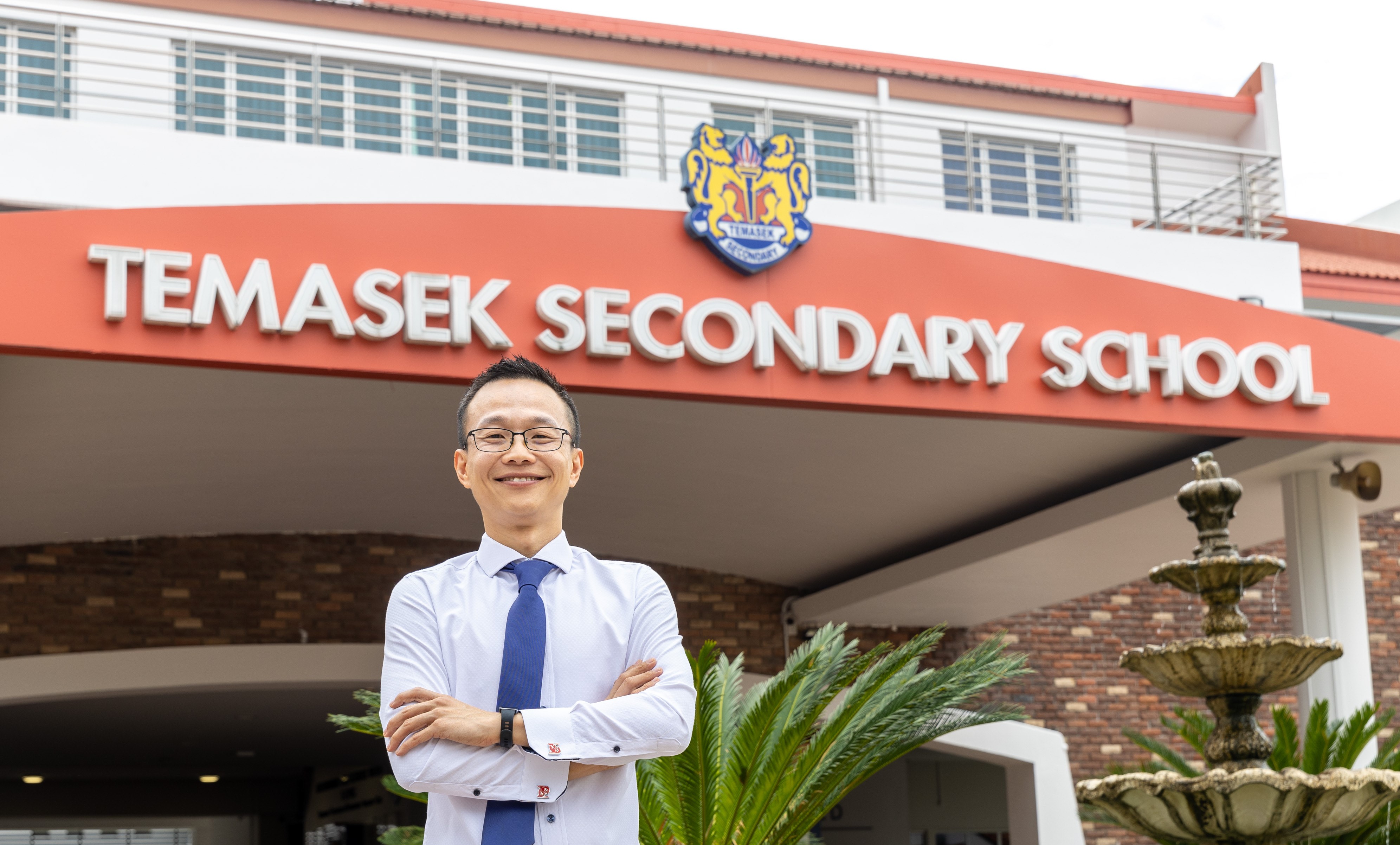Principal's Message
2026 Principal's Message

Our Temasek Story
Current students and staff, as well as recent graduates of Temasek Secondary School (TMS), would experience or have experienced quite a few infrastructural enhancements over the last few years (and there will be more to come!). We also look forward to Bedok South MRT station, one of whose exits is right outside the school, to be ready this year.
Despite the changes within and around the school, one thing that remains constant is our commitment to nurture our Temasekians to be joyful learners and exemplary leaders who will ride on the waves of tomorrow. Allow me to elaborate on how this commitment is translated into our school programmes and practices, using the colours of the school crest.
Navy blue: Alludes to Temasek, which means Seaport Town; also symbolises the vastness of knowledge which the school seeks to impart to all Temasekians
We want Temasekians to embody GROWTH learning dispositions – Grow with others, Reflect for improvement, Overcome challenges, Work towards excellence, Take initiative and (having the) Heart for learning. To that end, we design our curriculum and co-curriculum with GROWTH in mind, including signature programmes in student leadership development (LEAD@TMS), cross-cultural awareness (C2A) and talent development (Temasek Ignis Programme), which equip Temasekians with not just knowledge but also competencies that will put them in good stead beyond secondary school.
Red: Stands for brotherhood and team spirit that we hope Temasekians will embody
Imparting knowledge and development of competencies cannot take place in silos, however. An environment that is steeped in values, supports the child’s holistic well-being, and enables him/her to flourish individually and as part of a positive community, is essential.
The environment of TMS is anchored on our values of T-EPIC (Teamwork, Excellence in Performance, Integrity and Care). Of these, Care pervades our school practices and communication with students and stakeholders. TMS’ motto “We care”, which resonates among our students, staff, parents and stakeholders, drives our efforts to enhance holistic student well-being, and is also exhibited by our School Advisory Committee, Parent Support Group and alumni, whose strong partnership we cherish.
Pair of lions in gold: Represents prosperity and progress that we wish for Singapore and the school
Visitors to TMS will notice that the entrance to our heritage gallery is flanked by a wall that proudly displays photographs of some of our graduates and alumni. These individuals represent a fraction of the many generations of Temasekians who demonstrate our T-EPIC values and are making significant contributions to the community and nation.
Our strong sense of purpose has guided us in nurturing generations of Temasekians who understand their strengths and interests, work diligently to realise their aspirations, and contribute meaningfully to the community around them. We hope to work closely with our parents and stakeholders to nurture current cohorts of Temasekians, so that they will find relevance in their learning, purpose in their actions, and significance in their relationships.
If this purpose resonates with you, we welcome you to be part of the Temasek Story – a story filled with people who care – and to live out the vivid colours of Navy Blue, Red and Gold.
We wish you a fruitful 2026!
Mr. Tan Shun Loong
Principal

